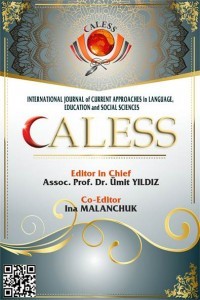The Concept of Re-Orientalism in The Namesake
The Concept of Re-Orientalism in The Namesake
This paper attempts to offer an original insight into Jhumpa Lahiri’s novel The Namesake by exploring it in the light of Re-Orientalism which has arisen out of the outlooks of the South Asian writers. If Orientalism discussed by Edward Said means that there are negative stereotypical images in the Oriental nations and sharply determined lines between the West and the Orient, Re-Orientalism points to the perception that the diasporic South Asian writers seek to reflect backward, patriarchal and negative stereotypes about the South Asian culture and conventions in their literary texts. Lahiri’s work needs to be analyzed through this perspective since she could be said to draw upon patriarchal tendencies that place Indian women within the frontiers of ignorance and minor status, Indian parents’ lack of empathy for children’s desires and generation gap due to the parents’ obsession with clinging to unnecessarily rigid rules of Indian traditions. While the second generation Indian immigrants display manners that symbolize the signs of the Western ideals such as freedom of speech, gender equality and individual autonomy, their parents as the first generation Indian immigrants in America represent the backwardness, the fact of silencing women in the family as well as the construction of insurmountable barriers between themselves and modern thoughts.
Keywords:
Lahiri, Orientalism, Re-Orientalism, Patriarchy, Freedom Generation, South Asian,
___
- Chatterjee, P. (1989). “Colonialism, Nationalism, and Colonialized Women: The Contest in India.” American Ethnologist 16(4), 622-633. https://www.jstor.org/stable/pdf/645113, Accessed 28.02.2017.Alfonso-Forero, A. M. (2007). “Immigrant Motherhood and Transnationality in Jhumpa Lahiri’s Fiction” Literature Compass 4(3), 851-861. http://onlinelibrary.wiley.com/doi/10.1111/j.1741-4113.2007.00431.x/epdf, Accessed 24.12.2015Lahiri, J. (2004). The Namesake. New York: Mariner Books. Lau, Lisa. (2009). “Re-Orientalism: The Perpetration and Development of Orientalism by Orientals” Modern Asian Studies 43(2), 571-590. http://www.jstor.org/stable/20488093, Accessed: 02.02.2017. Mana, L. (1987). “Contentious Traditions: The Debate on Sati in Colonial India.” Cultural Critique 7, 119-156. http://www.jstor.org/stable/1354153, Accessed: 02.02.2017. McLeod, J. (2000). Beginning Postcolonialism. Manchester and New York: Manchester University Press. Nayar, P. K. (2015). The Postcolonial Studies Dictionary. UK: John Wiley & Sons. Said, E. W. (1979). Orientalism. New York: Vintage Books. Young, Robert J. C. (2005). White Mythologies: Writing History and the West. London and New York: Taylor and Francis.
- ISSN: 2687-2528
- Yayın Aralığı: Yılda 2 Sayı
- Başlangıç: 2019
- Yayıncı: Ümit YILDIZ
